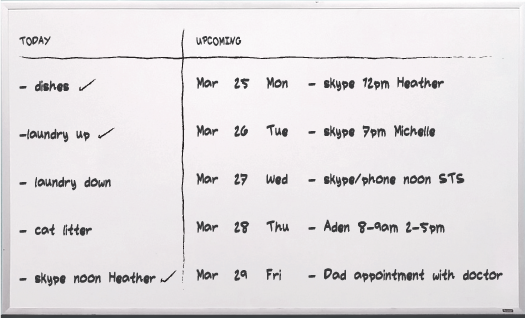Managing anxiety at college for autistic students. STEM grad student Laura Gilmour explores work-life balance for students, including times when she sought accommodations or professional support to manage her challenges. Laura reminds us taking on everything that comes our way often leads to anxiety or burnout. By proceeding more slowing and accessing supports, she’s building her resume, conducting research, and creating a flexible foundation for her professional future.
The world of research degrees, no matter what level, is a competitive one. You must meet the requirements for completion and make your applications for the next degree (or job) stand out from your peers. This is even more difficult as a student on the spectrum who must balance sensory issues, self-regulation, and self-care while still appearing to be a “good” student to your peers and advisors.
At one point during my undergraduate years, I attempted working and going to school at the same time. I was enrolled in a full course load and had made the dean’s list several times. It worked in the short term but was not maintainable. I ended up struggling with anxiety attacks and exhaustion. In early 2007, I needed a medical letter to withdraw from half my courses shortly after the withdrawal date.

I realized I had to take a slower route to the completion of my undergraduate degree in order to be successful. With the help of a supportive advisor, I carried out an honor’s equivalent research project but only took 2-3 courses at a time. After I graduated, my undergraduate advisor advocated for changes to the honor’s program, and my university now allows students with disabilities to get honors status without being a fulltime student.
If you experience challenges with mental health as a student—and need counseling beyond supportive listening or minor accommodation from an advisor—it is time to see a trained clinician. Your family, friends, or advisors are not equipped to be therapists, and it is not an appropriate role for any of these individuals. Therapy is best conducted by a neutral medical professional.
Last year, I once again found myself working part-time and on several local boards and committees, trying to say “yes” to everything I was asked to do or join. However, my father was struggling with his health, which brought stress at home. Again, I was simply taking on too much and was unable to maintain an acceptable “normal” as all these roles required me to. I personally noticed increased anxiety and irritability, decreased ability to focus on work, and frequent minor illnesses.

Often it is better to commit to less rather than to be the “hero” and be unable to continue. I reactivated my accommodations to be considered a fulltime student for student loan purposes under a 40% course load, which I had in place in my undergraduate and master’s degrees.
Although I am no longer in courses with set times, this will allow me to carry out my research, analyze data, and to have emotional resources left over. I can obtain relevant work experience, network, and participate in research, meetings, and workshops in addition to my dissertation.

It helps that I can complete much of my current work independently from my home office. As an undergraduate or high school student, I was in the minority among my peers of finding exam week a vacation because I got to study and work independently (and most of the readings/topics were areas of interest). Although I had to work harder to learn mathematical concepts, most other subjects came easy to me. The crowded classes were even more challenging than calculus, my weakest subject where I had to work hard for a C-.
As I move ahead in my career after graduation, I will have to pick a career setting that is a good match for my sensory tolerance. For instance, if I choose an academic career, part-time options, such as teaching at a smaller university with small class sizes, and/or teaching online courses rather than in person classes, might be some potential choices that fit my needs. In addition, my future career is likely to include a mixture of teaching and community-based and internet research rather than aiming to be a fulltime faculty member. Between leaving academia and being a full-time faculty member, there are many options that allow for a work-life balance.
As I said in a previous post about life reflections, your self-worth is not defined by your grades, credentials, future career, or salary. Attributing those aspects to self-worth is destructive thinking, much like using the number on the scale or other aspects of your appearance as a measure of your value as a person. Although your studies and future career in STEM is important, you are a human being who has many other roles in life beyond their career. For instance, in my personal life I am a daughter, sister, friend, pet guardian, and aunt. I have inherent value outside of my academic roles. Although my inner circle is small, I am very much valued and loved. Even if you don’t reach your desired goals or land your dream job or salary, learning helps you grow as a person. There comes a time in life where you must be happy with your personal best and the balance that is best for you, even if you still require support for some aspects of daily living. Strive for the best but learn to accept “good enough” over “perfect.”
If managing anxiety in college is a struggle, you might find the following posts helpful:
What questions do you have for Laura about approaches for managing anxiety and the work/life balance? Please join the conversation!
There are also national organizations that can help, such as Anxiety and Depression Association of America or Anxiety.org




